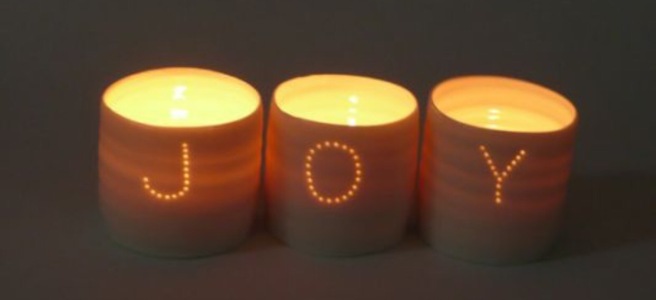“Count it all joy brothers when you meet trials of various kinds, for you know that the testing of you faith produces steadfastness. And let steadfastness have its full effect, that you may be perfect and complete lacking in nothing.” James 1:2-4
Joy. It’s a rare commodity in our fast paced, double booked, overly complicated world. Joy is simple, it is anchored on truth. Not perception or opinion. Real biblical joy springs from the concrete foundation of truth.
Jesus said, “I am the way the truth and the life…”. The Word made flesh did just that, He fleshed out the Word of God, the truth of God, so we could behold it, so we could comprehend it. The Truth Himself, stepped into flesh and bones to show us what Truth really is. Truth is what God has to say on any given subject. Simple. Yet, we complicate it with our grey lines and hazy views. We see a blur of boundaries and question what truth really is. The truth is, we don’t know what is right. Truth is we are scared to know. Truth is not our perception but God’s. So, in order to have a perception based on truth we must know the truth.
The Truth counters the lies of the world. It is the answer to our problems, the key to our addictions and the salve for our brokenness. It will be the truth that sets us free. (John 8:32)
The truth is, life is hard. Marriage is hard. Our careers are hard. Being a parent is hard. Being a child is hard. Being single is hard. Being successful is hard. But perhaps more than any of these, being joyful in trials is hard. Like a sink hole that is hidden beneath the surface, suffering causes our worlds to collapse. Out of nowhere the freight train of tribulation comes rolling into our station unannounced and unwanted. Yet, it carries something with it. if we look closely, the cargo it brings is one of great value; steadfastness.
The truth is none of us escape the fires of trials. Jesus promised us that. (John 16:33). But a deeper truth is found in the face of suffering; joy. It is in these moments that we are being prepared for providence. As Joseph went from one set of chains to the next, being cast down and rejected by men. It seemed as if the dream was annulled. That somehow God had forgotten, or maybe changed His mind. That’s not the case at all. the trials that seemed to be punishment was in fact preparation for the dream to come true. Every crushing situation was cultivating Joseph into the leader he would need to be in order to fulfill the dream given to him by God.
Wiersbe says “trials make us bitter not better if we live only for the present value of comfort over character. “ If we treasure comfort than trials will upset us.
“The kingdom of heaven is like treasure hidden in a field, which a man found and covered up. Then in his joy he goes and sells all that he has and buys that field.” Matthew 13:44
The man went and sold all he had to buy a field. Everything. This new-found treasure caused him to be bankrupt by the worlds standards. Yet, he found joy in release; with open hands he found rest. He traded the present value of comfort for the eternal security of the kingdom. When faced with trials, our faith is being tested, will we make the trade? Will we cling to the temporality of comfort or will we surrender all we have to the Kingdom? Trials are usually hard because something has changed. Something we treasured has been taken be it a family member, a job, financial security, an opportunity, and even a dream. When trials come, they come with purpose. God always has purpose in pain. Always. In the pain of trials, we are being sifted. That’s why it hurts. Because the old, the useless part of us is being sifted out of our character. Just like chaff off of grain, the “fluff” must come off. By fluff I mean the fake. In Luke 22:31-34, Jesus tells Peter that the devil has asked to shift him as wheat. And Jesus allowed it. you see even though Peters name was changed, there was still leftovers of Simon. Each of us will be sifted in order to get the old us out. Christ is after our wholeness, our completeness, and to accomplish that there has to be a purging and a pruning. John 15:2 says “All the branches that are IN me that do not bear fruit my Father takes away, but the branches that does bear fruit HE prunes so they may bear more fruit.”.
Truth is we see trials as the end when really its just the beginning. Truth is we see trials as God taking when actually He is pruning, for the sole purpose that more may grow. Truth is its hard to be joyful in trials when our happiness is locked on things of this world (including people) instead of on the Kingdom of Heaven. You see our tunnel vision proves to rob us of an eternal perception. One that is necessary for joy. When our happiness is determined by circumstances than joy evades us.
The cross is the symbol for shame and rejection. Where desperation meets disappointment. It was here, at the pinnacle of shame, that Christ’s endurance brought joy to the world. Christ came to do the Fathers will, to accomplish the purpose, to go to the cross. Yet, it required endurance which came from the surrender in the garden the night before. The garden of Gethsemane represents where one must lay their lives on the alter of God’s will. it is here in the quietness of the garden that we will be tempted to pray “Father, take this cup from me….” And leave it at that. But it will be how we end that prayer that determines wither or not our agony will be turned into joy as we utter the words “yet not my will be dine but yours.” The release of providence.
Christ’s surrender at the garden paved the way for the will of the Father to be brought about. In that moment Christ surrendered the present value of comfort for the eternal security of the Kingdom. And we are called to do likewise. “For the joy set before Him, He endured the cross…”. For the promise ahead Christ stood up under the weight of His trial, He bore the weight of suffering for the sake of joy.
All joy, James exclaimed, an Unmixed joy. One that is not tainted by “what if’s” or “if only’s”. It is a joy that rests in the assurance of truth. The truth that when we endure we experience the enduring love of God (Genesis 39:21). It’s joy in knowing His love endures longer and with more strength than any trial. Circumstances do not define God’s love for us-His covenant does. And that’s the truth.
Covenant, it’s a beautiful word. It is pregnant with providence and purpose. It holds the keys to our future and the security of our souls. It confounds the most brilliant minds and bewilders the humblest of souls. The truth of the covenant is what makes joy in the midst of trials possible. Without the solid assurance of commitment, our dreams are like a vapor, with no substance and no merit. Without a proper understanding of this truth we will flail and flop under the weight of suffering. We will let what was meant to define us be our destruction.
Even though the word covenant is not mentioned until Genesis 8, the idea of it is found within the first three chapters of the sacred writing. Now, to understand a covenant we must know what it is NOT. It is not merely a promise. It is a legal agreement, when one attaches themselves to another willingly, a binding together of two entities. The purpose of a covenant was always rest. Rest from social injustice, rest from strife, rest from war, rest from the enemy and so on.
As God made man in His image out of nothing and set him in the garden of Eden, He placed him within the boundaries of His rest. “On the seventh day God rested from all the works He had done.” God initiated rest as the culmination of His creative work. He had made something out of nothing, He had replaced the chaos with rest. As man tended the garden, basking in the tranquility of God’s rest. The serpent slithered into paradise and persuaded the man to take the forbidden fruit. As Adam and Eve partook of the fruit and sin entered the world, they were cast out of God’s rest. Genesis 3 even tells us that God set two Cherubim’s at the entrance to guard it from intruders. From that moment on God has been working a plan to regather His prize creation into His rest.
In Genesis 12 we see the answer to the plight; Abraham. As God calls Abraham and establishes him as the chosen nation, which Paul says that God in doing so was calling into existence things that did not exist.(Romans 4:17) Here we see a different play on the creation narrative in Genesis 1-2, where God created man out of nothing. Here in the twelfth chapter of Genesis, God is setting the stage for man to enter His rest once more.
What was taken from man by sin was more than just a place on a map, it was the Sabbatical rest of God. When sin came, it stole that rest and man was now subject to the chaos sin brings. And so enters Abraham. In Genesis 15, it is said that God cut covenant with Abraham. That God placed him in a deep sleep, and laid out a sacrifice, animals that were actually torn in half, and then as Abraham slept, God passed through the carcasses of the sacrifice to say that if HE didn’t hold up to His promise, then HE would be as one of those animals. This is vital to understand; the covenant is not upheld by what man does or does not do (That’s why Abraham was asleep-so he could take no credit) but finds its solidarity in the character and faithfulness of God. God was after His people to come back to His rest.
Hundreds of years later, the promise of the covenant was fulfilled. All the nations would be blessed by the babe, descended from Abraham, wrapped in swaddling clothes and laying in a Bethlehem manger. As Christ hung on the cross, the symbol of shame and rejection, the penalty of sin was laid upon His shoulders. As the weight of sin broke the Messiahs body, the blood of that sacrifice now fulfilled what was foreshadowed in the covenant ceremony between God and Abraham. The New Covenant was now inaugurated and as a result: rest.
“So, therefor there remains a Sabbath rest for the people of God.” Hebrews 4:9
As the curse of sin was removed from the soul of man, so too the Cherubs removed from the entrance of the garden. Now, man was free from the restraints and burdens of folly. Now, man could rest. No longer was the Sabbath a day on a calendar but it was now a condition of the soul. The covenant freed us from the struggle and God has reached His intended goal: rest. He was after is all along, the marvelous plan to get man back into the garden was completed in a garden in Jerusalem, where the tomb proved too weak to hold the Chosen One inside. The coventential love ushered man back into the perfect rest by the redemption of sin.
You see the covenant, that Jesus has set over our lives, gives us rest from strife, rest from toil, rest from chasing our own dreams, rest from building our own kingdoms, rest from the demands of our own agendas, and even from our trials.
Rest from it all.
Because of the truth of the covenant, we have sabbatical joy. A joy that comes from resting in the covenant. A joy that chooses the eternal security of the covenant over temporal comfort. A joy that exults in trials because it founded on the truth; that all trials, all sufferings hold not threat to us. The hardships and the pain will not destroy us because we are bound to Christ. He is ours and we are His. Sabbatical joy frees us from the chains of oppression and lifts us out of the pit of depression. And because of that our joy cannot be shaken.
 The good news for us is that the Savior cannot be sealed! Salvation has been secured. All the ploys of the enemy couldn’t keep Jesus secured in defeat, He broke through the seal and the soldier – neither could hold Him. And because of His victory, we experience the same victory. No seal and no soldier can keep you in defeat! The enemy’s best efforts couldn’t secure the Savior in defeat and the same is true for you.
The good news for us is that the Savior cannot be sealed! Salvation has been secured. All the ploys of the enemy couldn’t keep Jesus secured in defeat, He broke through the seal and the soldier – neither could hold Him. And because of His victory, we experience the same victory. No seal and no soldier can keep you in defeat! The enemy’s best efforts couldn’t secure the Savior in defeat and the same is true for you.





